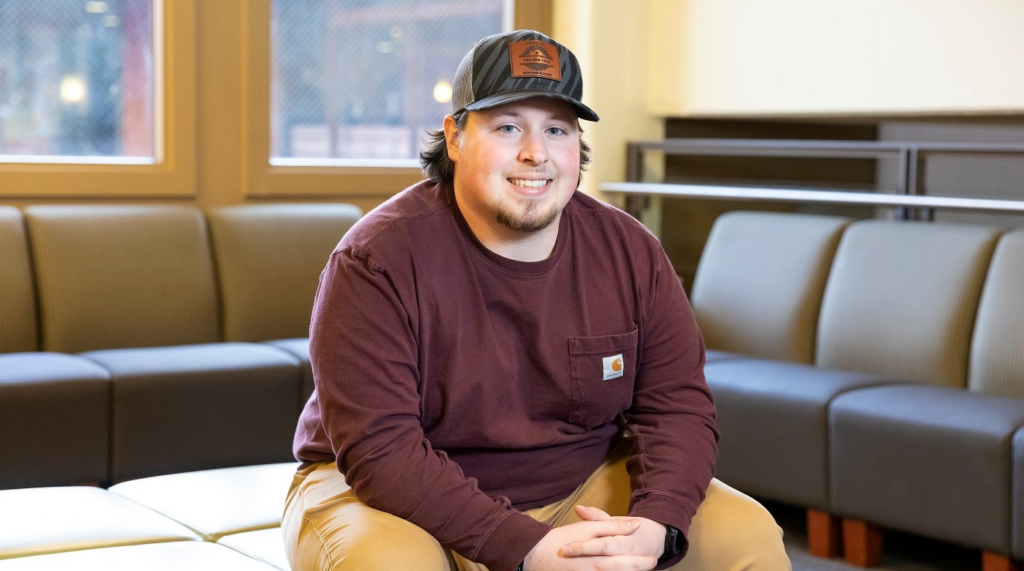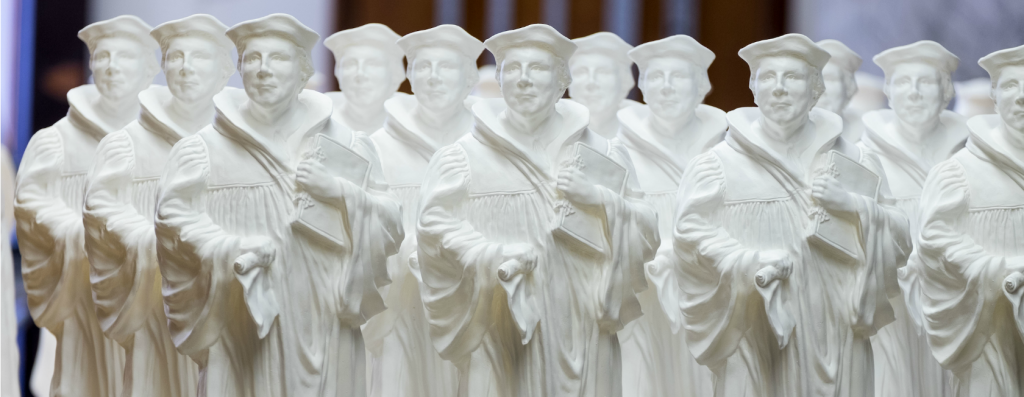Page 94 • (1,083 results in 0.046 seconds)
-
. I’ve never shown students my cat before, so there’s this kind of moment where you can bond.”Simpson-Younger had an eventful time away from in-person learning. A book that she co-edited, Forming Sleep: Representing Consciousness in the English Renaissance, was published by Penn State University Press in June, 2020. It touches upon literary representations of sleep from 1580 to 1670, and discusses how sleep defines the human condition. Simpson-Younger and her co-editor, Margaret Simon, came up with
-

.” Her mentor agreed. “In terms of my 25 years in academia, she’s in the top tier of student performance,” Grahe said. “I could see her at a Tier 1 research-focused school where she teaches maybe two classes a year, and the rest of the time does research. I could see her running a nursing ward as an administrator someday, or running a school where other people are learning how to be a teacher. She’s brilliant to start with. Wherever she goes, I think she’ll be successful.” Read Previous J-Term 2020
-

.” Hall is committed to continuing cultural exchanges with other indigenous groups. Before beginning her work with the Samish, she worked with an indigenous population in Rwanda. “There’s power in bringing our voices together and learning about one another,” she said. That’s why canoe journey, in particular, is so important. “It’s incredible to see how big this event has grown,” Hall said. “Every year, there are more and more canoes that participate.” Read Previous Partnering with Parkland Read Next
-

room. Although each environment brings unique challenges and complexities, Knapp immensely enjoys teaching and learning from every student. The grade-schoolers enter the classroom bustling with excitement and energy each morning, which certainly wears off on Knapp.EducationLearn more about the Education program at PLU“The students always tell me, ‘You can also do it this way.’ They have that mindset that you can do things differently. The students come to school ready to learn and excited with a
-

can be difficult for any student, but it’s particularly challenging when you or your family might not understand the ins and outs of higher education. For those learning to navigate the language and culture of college, here are five things every current and incoming first-in-the-family student should know. And Gurjot Kang ’21 — a current first-generation student living in the “First in the Family” community in Stuen Hall — shares her perspective. 1. You’re not alone. Kang shares how to build
-

with our research directors, and are now completing our final draft to submit for editing. When you reflect on this experience, what stands out to you? AS: My projects were very specialized to what I am learning at PLU. It was very fun to stretch those muscles and expand on them. The most important thing I came away with was my admiration for how Icelanders view the earth and how those values affect their conservation efforts. When there is a deeply rooted connection to your land and its history
-

math, physics and computer science, but also the life sciences and humanities, connections encouraged by the interdisciplinary arm of the contest. The Consortium for Mathematics and its Applications also hosts the Mathematical Contest in Modeling (MCM)—the “pure math” side of the competition. This year the simultaneous contests drew 20,000 teams and played out at thousands of locations across twenty-one countries. At PLU, the ultramarathon-style drama unfolds in the Morken Center for Learning and
-

get to know each other’s personal views and values and that kind of thing. I feel like that helped a lot.” PLU’s version of the course comes with all the benefits of a liberal arts lens, which means that these student-athletes aren’t just getting educated on how to score better on tests and produce better homework — they’re also learning about the world around them, their place in it and how they can better themselves and others as community members and global citizens. Dr. Eva Frey, left, and
-

these fields so we could get advice on our own careers. I was definitely inspired to hear from all these awesome people. What excites you about serving on the ASPLU? I am so grateful for being here in that I can tangibly make a difference that I wanted to make when I first came to campus. I feel like with the nature of the smallness of the PLU student body I feel my voice can actually be heard. My favorite thing from last year was learning that I am not alone in that. There was an amazing influx of
-

anniversary of the Reformation. Students with the Marty App (free to download) participate in a scavenger hunt for facts about Martin Luther. How long did the process of creating Marty take from start to end? Ebbinga: From start to finish it was 399.5 hours over the course of 48 days. What was the most difficult part of this extensive process? Ebbinga: The most difficult part, or perhaps most time-consuming part, was learning a slush-casting method that worked well for this particular mold. Slush-casting
Do you have any feedback for us? If so, feel free to use our Feedback Form.


